#the queer experience of not being able to decide if
Note
Do you have any thoughts on the intersection of disability and sexuality? I made a disabled OC who was designed as a tongue in cheek subversion of the "can't have sexual attraction as a disabled person" tropes-- she's pansexual and something of a disaster queer, by her own admission. Her type is guys with messy hair who are a little bit dorky, fem girls who are sweet and have long hair, and... pretty much a good portion of the cast at some point. But I wanted to get some more opinions, since I (known disabled person) am probably going to write a lot more disabled characters.
Hi!
In my opinion, there's a huge problem with disabled characters being completely desexualized, and it happens a lot. Especially for severely and/or developmentally disabled people. If you're interested in some real-life examples, I can't recommend Crip Camp (2020) enough! There's a fragment specifically about that intersectionality around the 50-minute mark, by Denise Sherer Jacobson.
However, there's also the other side of sexuality and disability, which is the fetishization. We talked about fetishization on this blog before, but it wasn't literal (at least most of the time).
There are some specific disabilities that are more affected by this, the prime example being little people - or, people with dwarfism - which often get oversexualized and objectified. Here's a very relevant post about this by @a-little-revolution.
You can see this on tumblr too, some tags (#amputee comes to mind) are basically unusable because it's all able-bodied fetishists. When doing your research I'd just urge you to avoid this kind of crowd for your own well-being.
In general, make sure that the narrative doesn't frame her exploring her sexuality as something "taboo" or "freaky". It could be good to have abled characters who are similar to her in that as well!
I think that your perspective as a disabled person will help you avoid many of the problems that could pop up. Remember to give your character(s) agency when it comes to their sexuality and if you decide to have multiple disabled characters, try to give them different views/experiences of it!
I hope this helps! :-)
mod Sasza
31 notes
·
View notes
Text
arthur lancelot and guinevere are the people id say yes to if they notice me across the bar and really dig my vibe
#the queer experience of not being able to decide if#you want them to adopt you or kiss you#im not sorry im disaster#hnoc#high noon over camelot#the mechanisms#the mechs#arthur hnoc#lancelot hnoc#guinevere hnoc#gods im so gay
43 notes
·
View notes
Text
as someone who has been scarred for life by experiences at gay bars, i need people to understand it's beyond tacky to mock people who want queer spaces beyond queer bars- it's dangerous.
let me explain. i went to 2 of my local queer bars a lot last year, as much as i was able to despite being poor. i witnessed a fist fight that was so bloody that ended up with a transmisogynistic drag queen getting hit in the head with a metal baton. the sight caused me to uncontrollably throw up in the bathroom of the club because of how gruesome it was. they had to close down the club and forard people out the back door because of how out of hand this person got- he was screaming transmisogynstic slurs and phrases at the bouncers were were transfem.
i was also sexually assaulted at these places, i was repeatedly groped by several people who i was not interacting with in the first place who found me attractive and decided physically grabbing me on numerous occasions was the way to get my attention. being femme in a queer bar is dangerous even if the people groping you are gay men.
i am also a recovering addict who dealt with alcohol issues in the past and could be considered a recovering alcoholic. i don't want to be around alcohol. i don't want to smell it. it triggers awful memories and also sometimes makes me consider getting a drink, but i can't have one, because the medications i take will cause a fatal reaction- i don't want to be tempted to drink, because it will kill me.
it's not right to mock someone or call them childish or whatever for not wanting to go to a club. whenever alcohol is involved, people's inhibitions are gone and they will do whatever. this includes fighting. i witnessed several other fights. just because it's a queer bar doesn't mean there won't be fights. and it especialyl doesn't m ean that you won't get groped or assaulted because, like i said, since alcohol is involved and it's a bar, there's a high chance this can and will happen.
queer people are not inherently safe angels to be around by virtue of being queer. there are still transphobes in queer bars. tranny chasers come to these bars. homophobic lesbians show up and lesbophobic gay men show up. drag queens and performers bring their cishet friends and family to support their shows. these are not perfect havens. they are not safe. we should not force other queers to interact with inherently dangerous spaces if these are supposed to be our safe spaces.
also these spaces are not friendly to people with disabilities; wheelchair users have nowhere to go especially when it's very crowded. other mobility aids get kicked and knocked over. neurodivergent people can get overstimulated by the deafening music very quickly. photosensitive people can have seizures due to the strobing lights. people with emetophobia like me run the risk of running into those types of triggers. people who are overstimulated by intoxicated people have no choice but to deal with it. dancing is one of the only activities to do other than drink and not many disabled (or even abled) people can dance for extended periods of time comfortably.
not to mention these spaces are not geared toward aromantic or asexual people at all, either. there is a long list of reasons why bars should not be our primary venues of interaction with one another. they serve a specific purpose- for people who want to cruise- but for the rest of us, it's really crucial that we have spaces that provide meaningful interactions with other queers on other levels of our identities.
some people just want to hang out with other queers in a quiet environment and craft, or shop, or drink coffee, or read books together, or just about any other activity on planet earth, and that's not "lame" or "cringy" or bad in any way- these are extremely normal and necessary parts of human interaction that we all require and crave and it's normal to want to do healthy, domestic things with other queers. we need this in our lives.
please take it seriously when people attempt to create queer spaces that don't involve alcohol and bars. it's necessary for our survival and well being as a community.
#lgbtqia#lgbtq#lgbt#queer#gay#lesbian#bisexual#aromantic#asexual#trans#transgender#non binary#nonbinary#enby#ftm#trans man#trans men#trans boy#trans girl#trans woman#trans women#trans lady#transfemme#transfeminine#transfem#transmasculine#transmasc#genderqueer#gnc#drag
3K notes
·
View notes
Text
tw: black+trans death
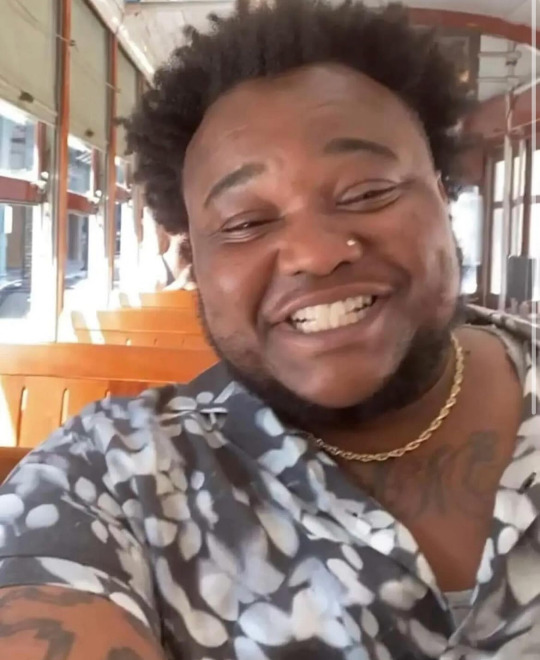
from the_yvesdropper on instagram:
our beautiful black trans brother, 35 year old Righteous Torrence "Chevy" Hill, was murdered in Atlanta, GA this weekend.
he went by his nickname 'Chevy' he was originally from Macon, GA. he owned Evollusion, which is a black/ queer owned LGBTQ+ salon in Atlanta that provided and dedicated full service to specializing in hair, nails, barbering and makeup. growing up as young black queer boys/kids, the barbershop experience can sometimes be a tricky space to occupy, this was something that Chevy understood and wanted to cultivate a space of safety where you can also get the affirming look and style you want, and he did exactly that.
Chevy was a beloved son, brother, partner, and father.
one of his last posts that had a photo of himself said :
"if you truly know me, you know i am a humble, modest, private man, that i love my community, i have the love of God in me and will give the shirt off my back to any soul in need, also i never post pictures of myself, legaey give myself credit, that stops today, i am my legacy!"
(a close friend of Chevy asked if i could share more then one photo of Chevy, since he never posted photos of himself and in recent years he got the confidence to want to share more photos and now he won't get the chance to)
Chevy, hey king, hey brother, hey angel, thank you for everything, i lové you, we lové you, i'm so sorry. there are a lot of photographers in heaven who will be able to photograph you as the glorious black trans angel that you are.
there will be a homegoing service/memorial for our brother
there aren't many details about what happened but apparently he was shot by a family member last wednesday, the 28th (at least this article was the one linked in relation to his murder.)
judging by both the IG post and the comments section he was well-loved by many people and those people have many good memories with him and nothing but good things to say. this is a comment that was left by tirajmeansgolden which was hidden by IG for some reason:
I started testosterone in February 2020. I hit this man up at the end of 2019 after numerous Google searches for an LGBT-friendly barber near me (and by near me... he was a good 35-40 minutes from the rural area I was in outside of Atlanta: but when I found out he was a trans man and that his business was the first and only LGBT hair bar, I knew it would be worth the trip). I was a dysphoric mess in his DMs one Sunday. I hated how my hair was growing out. I never had a "masculine" hairstyle before but decided one day I would buzz it all off myself, then allowed it to grow out a bit... I sent him a video and despite him being closed on Sunday, he told me to come through. I got my hair braided and he gave me my first really masculine fade. Explained the different terms. Lined me up. Was asking me about my decision to transition and provided some helpful advice + guidance. I told him how I was a therapist and he was hype and said he talked with a group of trans men and he would love for me to stop by and also give some mental health tips. So whoever said he was humble - wow, what an understatement. Such a community man! Made me feel SO comfortable because barbershops were a source of major trauma and triggers for me. They were such an integral part of my early transition (I just celebrated 4 years later week). And he was such an integral part of the Atlanta Queer community with hosting events like Queer Con. How I found so many other great resources + queer businesses/artists. May you rest in peace, Chevy. You'll be missed. You've made such a different in the lives of countless people. You definitely were living your Purpose + left a legacy behind ...
#op#rest in power#black trans lives matter#death -#black death -#trans death -#didn't add a tw to the top of this post at first. sorry everyone.
1K notes
·
View notes
Text
The ways in which being asexual feels isolating
I've been pondering whether to post this or not, but I figured out I wanted to explain a bit of this experience.
So, I could go on a very long tangent on how being asexual is usually a lonely experience, and how much I've been otherized here and there- Specially in real life. How the same people that claimed to be queer (or allies) had been much weirder about my asexuality than they were about me being bi/pan or whatever.
But I think I wanna talk about how something like that bleeds in every aspect of socializing, even down to something like fandom. I stay away from fandom usually- I like to look at cool fanart and that's about it. I hate discourse, I hate drama, I hate reading people getting worked up because they're treating fanon as canon. But there's one thing I've noticed, over and over, that just sends me off my rails.
And it's how fandom tends to treat asexuality (or aromanticism). So, you get a character in some piece of media that explicitly, unequivocally, states they're either ace, aro, or both. "I do not have interest in a partner", "I don't desire to have sex nor do I enjoy the topic", whatever. And as an ace person, I do appreciate being able to see myself in media- There isn't many chases where something is established that bluntly.
Now, you decide you want to check some fanart for that. Fandoms have this tendency to make absolutely everything about shipping, even when the media they're basing it in does not revolve about that (and it's annoying, because a lot of times people aren't interested in the actual themes- It's all reduced to shipping). Suddenly, you notice people treating the aforementioned character as anything but aro or ace. It's all about shipping. "This person interacted with this other person in a way two friends would, but we gotta make this their entire personality now". Some people may instead go for "well, maybe the character is not having sex, but they're probably an absolute freak about it, studies it extensively, has encyclopedic knowledge about it-"
Now, there's of course sex-favourable aces, and that's completely valid, but it's already straying from what, canonically, the character had mentioned. Asexual or aromantic characters aren't really allowed to exist as themselves. People often see them as a blank slate to fill, to change, to fix. I could talk forever about how people react to real life aces like that. I've had people asking me incredibly invasive questions because they saw my lack of sexual attraction as something broken, something they could fix.
And I hate that! I think I'm allowed to say that I hate that! It's hard and unusual for media to cement an aro/ace character, because they're defined by the lack of interest for something, which is often hard to show. But when it does- No one seems to care. It's all shipping, it's all "well, he's gay in denial", "well, she's probably super repressed". If you took a canonically gay character and made them straight on a fanfic, you'd get angry people. Which is bound to happen when you erase representation that people identify with. But aro/ace characters are NOT even seen as queer, they're not even seen as "representation" by most people. You can erase that bit of it, put some god awful shipping on top, and people will applaud you. And it sucks!
I wish people would see being aro or ace as an identity worth respecting, not an identity that needs overwriting. It feels a bit too close to how people often treat aro/aces irl, and it sucks. It reeks of this sort of exclusionism, where "aro/aces are technically queer but it's queer lite at best, it's less interesting than being gay, and we kinda don't want them near us anyhow". Again, I've had far worse experiences about being ace than I have about not being straight.
Sorry if the post got long, but I hope this experience may at least resonate with other people who have been struggling with this, too. It has always felt just kind of lonely to be ace, and see how little people do even consider it an identity, even when it comes down to something like fandom.
590 notes
·
View notes
Text

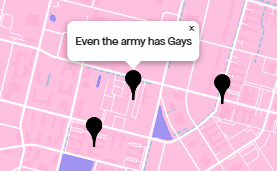


no but i can't stop about eddie finding queering the map and being overwhelmed by the amount of stories that resonate with him.
it starts with buck, because of course it does.
buck comes into the station one day, rambling about this site he found online. he's still figuring out bisexuality for himself and has been going down a rabbit hole ever since, reading endless articles and reddit stories and experiences told from so many people.
and something about it, about this particular site, catches eddie's attention. he really can't stop thinking about it, wondering if people from el paso would have any of those pins. if anyone from the place he grew up in, was raised in, ever felt like him.
he can't stop wondering if maybe he was never as alone as he thought he was.
when he gets home, he decides to look for himself— it takes him a while. there's too many black pins and he doesn't quite know how to navigate the huge map on his screen. it takes him a few minutes to get the hang of it.
but when he does— oh, when he does.
right there in el paso, people from the same streets he once rode his bike in, are sharing his experiences. fellow soldiers in the same base eddie trained at.
eddie reads these sacred, secret little messages and feels his heart expand more and more with every each one of them.
some of them makes him laugh and chuckle, teary eyed but amused, like "even the army has gays," and "from one gay cowboy to another."
others, nake him falter. make his bretah hitch inside his chest. make something beautiful and fragile and orecious uncurl from the deepest depths of his soul. make him feel seen in a way he isn't sure he's quite ready to.
messages like— "you're not the only one," and "you'll be okay." "the heaven the people from this town speak of, is not a heaven i wanna be sent to." "i should've told him when i had the chance." "stuck in a warzone, thinking about how i wasted so much time and now i might not make it home to him."
messages that hit a little too close to home. from soldiers still in the closet, struggling to accept themselves and living a lie.
messages from dumb teenagers, scared of the future— just like eddie had been once.
messages from people braver than he ever could be, sharing the stories of how they came out to their families and moved across the country to be able to live their truest selves.
eddie spends hours and hours just reading post after post, goingbthrough as many lins as he can and drinking them in as a dying, thirsting man in the middle of the driest desert. he reads until the light from the comouter makes his head hurt and his eyes burn everytime he blinks.
at the end, before closing the tab, he decides to put on his own note.
📍not sure if I'll ever be ready to say it out loud, but I love him. i'm too late. I've lost my chance. this changes nothing, my heart is still in his hands.
he clicks on add and feels the tiniest amount of weight lifting from his shoulders.
#i.... don't know what's this tbh#queering the map#eddie diaz#buddie#kinda#evan buckley#911 abc#911 on abc#april writes#my writing#911 ficlet#911 fic#buddie ficlet#buddie fic
426 notes
·
View notes
Text
the thing about queer exclusionism besides being blatantly hypocrytic is that it treats being opressed and discriminated as something meriting authority within the community. "youre not opressed so you cant be part of our community" who are you to decide what counts as opression? how can you judge an experience you havent lived? queerness has so many levels and intersections with other factors that you will never be able to completely santise it to your liking. there will always be people and labels that you dont understand and distinctions you think are futile in the grand scheme of things, but you have to learn to be civil towards them, you have to learn about intersectionality. you cant decide who is "opressed enough" opression doesnt have levels, its not something you can rate, its something you fight against and thats it. if you want to defeat opression, you cant use it as a unit of measurement.
#sorry i usually dont post things like this i just saw too many idiots today#and i am in no way trying to pose myself as an authority on this topic#i have my own set of pet peeves and things and labels i dont understand the application of#but you will never see me exclude someone from being queer based on the opression argument#queer community#queer
530 notes
·
View notes
Text
Respectfully: yes, of course being sex-positive is incredibly important, but you know what's equally important? Being sex-positive without being fucking aphobic. It's not a herculean task at all; I see aspec and allo people alike who are absolutely able to do both successfully. But it does require a bare minimum amount of critical thinking.
You can defend kink at pride without saying or implying that sex is what makes us human, or that sex is a requisite for the "true" queer experience. You can talk about the indescribable value of gay bars without accusing anyone who isn't interested in them of being either a prude, creepy and antisocial, or a "boring virgin." You can stop arguing that any given queer person or group of queer people you dislike (perhaps even within reason) would be more progressive and less reactionary if they had more sex (and yes, this is a real take I've had to see on this website).
You can, and urgently, should stop pretending that sex negativity as a cultural force is caused by ace people — instead of you know, caused by cultural conservativism and cultural Christianity. And on the flip side, you can stop with that thing where you act sex-positive until you see an aroallo person wanting to have sex without a romantic (closed, nuclear) relationship — and suddenly, throwing all sex positivity out the window as you decide that they're a freak and a manipulator and evil incarnate. (Yes, you need to be kinder to even the cisgender heterosexual aromantic men. That particular discourse encapsulates the feedback loop between arophobia and radfem-lite beliefs, by the way, which is another thing the queer community here is horrible at avoiding in its rhetoric.)
So: sex positivity includes aro-spec allosexuals, who need it for precisely the above reason — because alloromantics demonize them otherwise. And sex positivity includes ace-specs who need it just to talk about their experiences, without getting called inappropriate for merely acknowledging sex out loud, let alone their own relationship with sexual desire.
(Have you already forgotten one of the biggest aphobe talking points in 2016? That aces acknowledging their identity in any capacity were "oversharing," and making people "uncomfortable" — and god forbid you ever mentioned asexuality to a minor?)
At its core, sex positivity includes accepting people can have morally neutral relationships with sex that you wouldn't personally want — and maybe even ones that might make you uncomfortable. And so much of this website seems perfectly able to understand this — or at least, preach this — until the second an ace or aro person shows up.
You're not allowed to exclude us from this movement. You're not allowed to twist this movement's intent to put us down. Kill this new wave aphobia in 2023 or so help me. We're not letting this community do this again.
#aphobia#acephobia#arophobia#if this happens to get serious notes i'll turn reblogs off after a day or so#just want to make that clear that i stand by everything i say here - i just might have to take measures for my own sanity#this blog will return to normally scheduled programming soon#but this 2020s aphobia is legitimately reaching a breaking point. and i couldn't hold myself back from this post any longer
417 notes
·
View notes
Text
I think what makes Our Flag Means Death so remarkable in terms of representation is not just the broadness of it, but the depth.
We have an indigenous lead character, but he's not only that. He's also queer. He's a romantic interest. He's middle-aged. His arc portrays surviving trauma and abuse. It also portrays mental illness. And it portrays breaking free from toxic masculinity. And it never tries to put him in a box when he explores his masculinity and femininity.
We have a non-binary character, played by a Puerto Rican NB actor, but their arc is not about their gender identity and their coming out is simply a case of "Just keep calling me Jim". They have a romantic/sexual relationship with a black character, and never is this relationship or either of their sexual orientations or Olu's sex appeal as a fat person or "who even is the man in this relationship hahaha" questioned. When they get into a poly relationship, it's just accepted, instead of questioned or even defined.
These are just a couple of examples. It's not that Our Flag Means Death is the only or the first show with queer/BIPOC/disabled representation, because it's not. What makes the show remarkable is the unique combination of queerness, ethnicity, age, disabilities, life experiences, etc. that each character carries within themselves, yet none of these characters exist solely to appear as representation of any minority on screen. Their identities are not glued onto them, they're ingrained, but in the end, they're just people. Just like in real life. Identities do not work as plot points. Being queer is not a plot point. Being non-binary is not a plot point. It's just a small part of the whole complex experience of life.
OFMD is a perfect example of telling a queer story that doesn't focus on telling a story directly about the queerness itself. Because we have stories about queerness already. We have so many of them that it just feels like tokenism at this point to see yet another story about coming out or forbidden love or anything like that, even if it's well made.
This show took me by surprise with every new way of representation it offered, because each time it did the total opposite of what I expected. It took all the tired tropes and said, "Yeah, see these? We're not gonna do any of that." It delivered something I never thought I'd see on screen.
It never explains the characters' identities to the audience. It simply shows them exactly the way they are and lets you decide whether you see yourself in them, and I think that also allows the audience to question their own identities, to explore gender and sexuality freely without immediately putting labels on things.
People who never thought they might be trans or non-binary or queer in any way discovered their identities through the show. People who struggle with mental illness or trauma saw someone like themselves portrayed with kindness and respect on screen and were finally able to extend the same kindness to themselves. People who are always left out of romantic stories because of their age or body shape or the color of their skin finally saw themselves portrayed as desirable and worthy of love and romance.
That is why so many of us feel that, in the words of Ruibo Qian: "OFMD woke me up."
#ofmd#our flag means death#long live ofmd#save ofmd#this is also why i wanted to see season 3 so bad#this show has an AMAZING writers' room#the diversity begins in there with having writers who belong to the minorities that the show portrays#and with hiring actors who belong to the minorities that their characters portray and listening to their ideas and feedback about them#there's so much the writers still could've given us in terms of representation#there's so much more left to explore#and this is also why 'just watch another queer show' simply doesn't cut it#there is NOTHING like ofmd
201 notes
·
View notes
Text
04/23/2024 Daily OFMD Recap
TLDR; David Jenkins; Taika Waititi; Samba Schutte; Vico Ortiz; Astroglide; Articles; Fan Spotlight: Cast Cards; Never Left Podcast; OFMD Colouring Pages; Love Notes; Daily Darby/Tonight's Taika
== David Jenkins ==
Chaos Dad popped out to send some love and support today!

Img Src: David Jenkins Twitter
= Taika Waititi =
Well, Taika broke the internet today with his Belvedere commercial. Directed and starred in it. Be sure to open a window because it is hot.
youtube
= Samba Schutte =
Samba has started up a new T Shirt campaign to benefit the charity @everymomcounts that helps to make pregnancy and childbirth, safe and equitable! You can either buy a #CrewForLife t-shirt, or sign up for one of his baking classes/meet and greets!
Our Merch Means Death on Stands
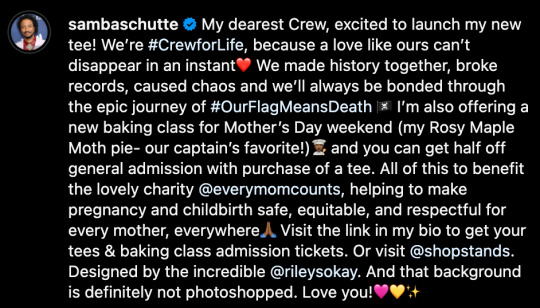
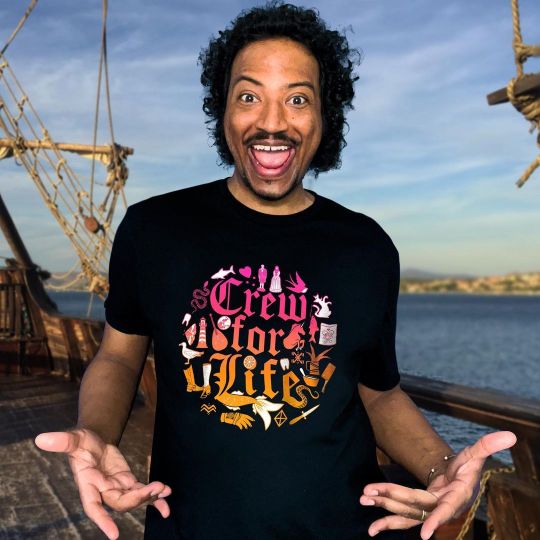
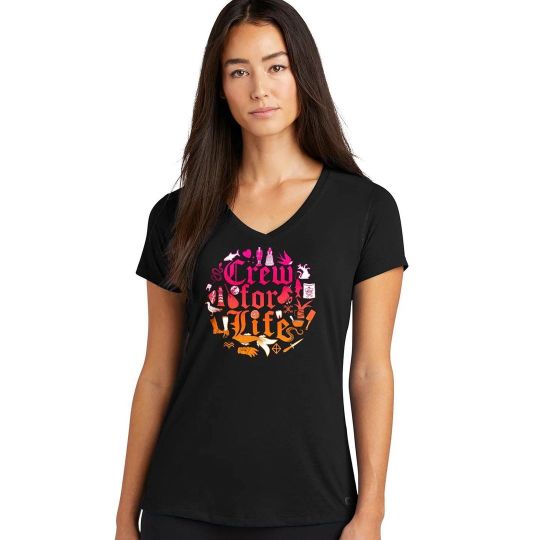

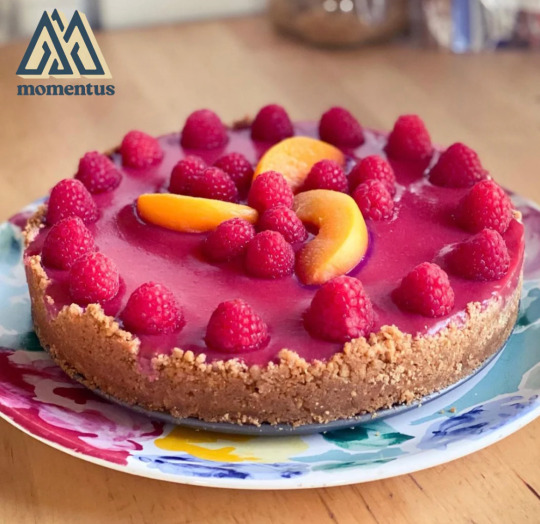
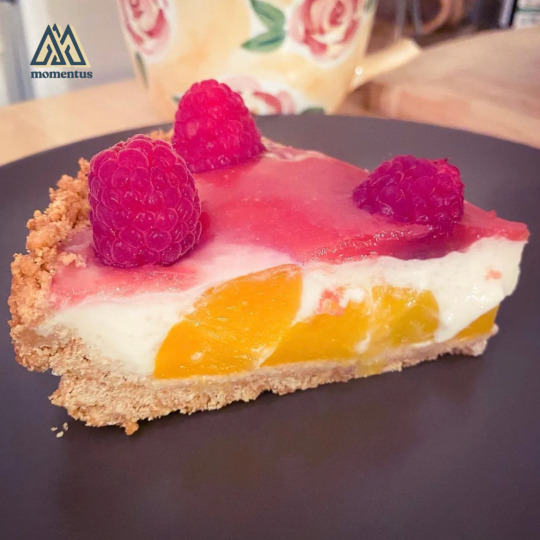
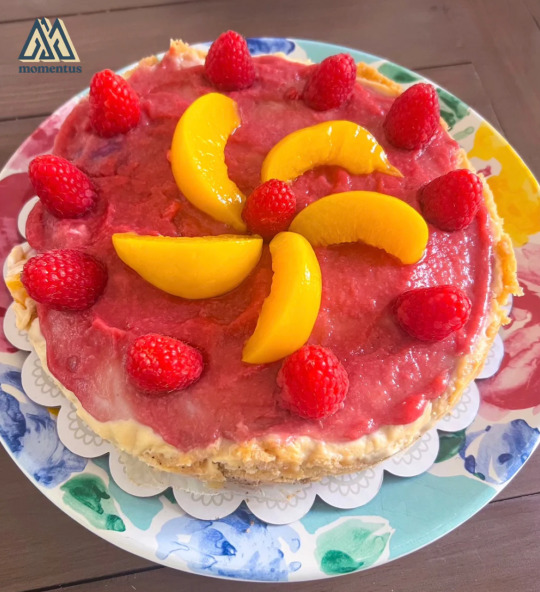
Delicious Chaos with Samba Schutte
== Vico Ortiz ==
Vico starred in a short called Fire F*cking Fire and great news it's headed to the Tribeca Film Festival in June!
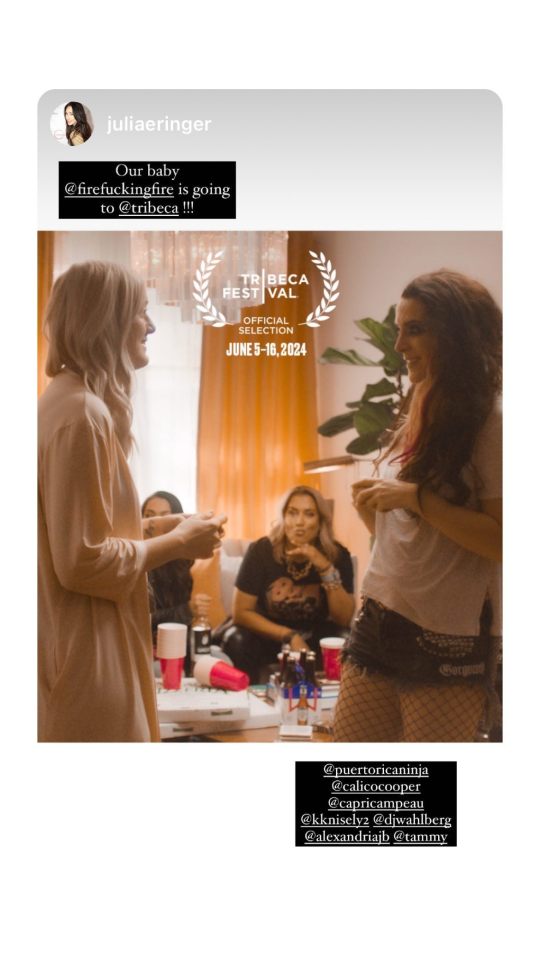
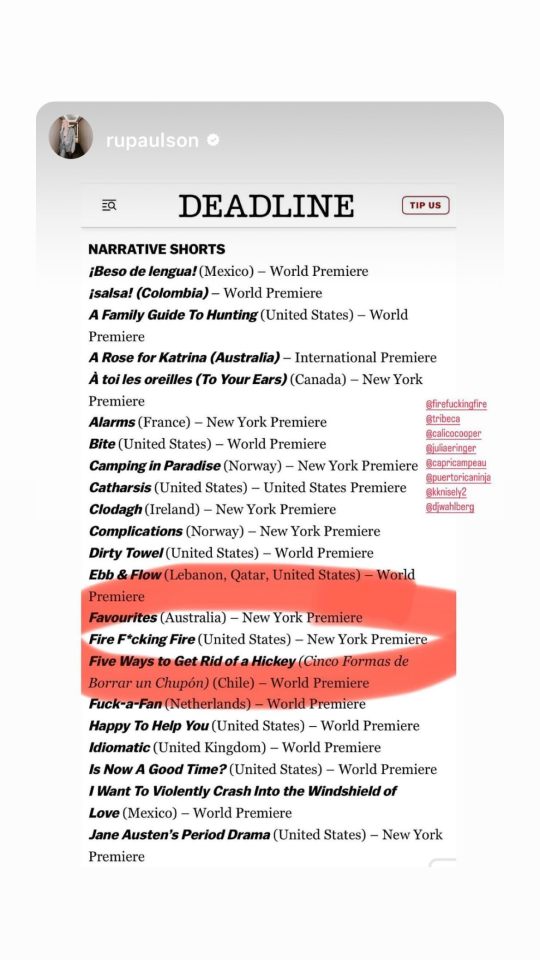
Img Src: Vico Ortiz IG
== Astroglide ==
Our besties over at @astroglideofficial put out a word search today with a few words/phrases you'll recognise!
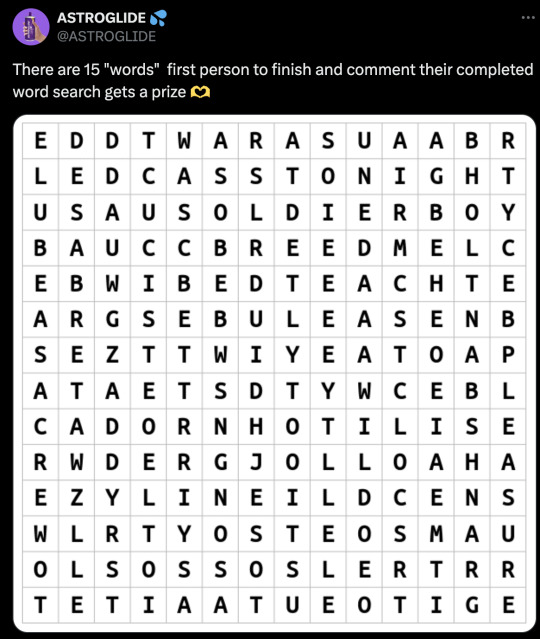
Img Src: Astroglide Twitter
== Articles ==
Warner Bros. Stock Has Had a Rough Year. Why This Analyst Thinks It Will Get Even Worse.
Mark Indelicato Frustrated With Queer Shows Constantly Cancelled
== Fan Spotlight ==
== Cast Cards ==
Our fabulous @melvisik has another cast card for us! Tonight's is another one of the bourgeousie that Frenchie and Olu manageed to include in their Pyramid Scheme! They are the one that Olu told to "Go Away"!

Img Src: @melvisik's Twitter
== Never Left Podcast ==
Next episode of the podcast Never Left is out! This one is Beautiful Princess Disorder Part 5!
Never Left Instagram
Never Left Linktr.ee
== OFMD Colouring Pages ==
More colouring pages from the fantastic @patchworkpiratebear !
Visit their tumblr for more!

== Love Notes ==
Hey there Lovelies. Happy Taika Tuesday! Did you have a good day today?
Dad's comments today brought out a lot of folks sharing their stories on therapy and I wanted to chat about it for a moment.
First of all, if you're delving out for the first time (or trying again after years of not going)-- just know, you're being really brave. Depending on where you come from and your background, mental health may not have been something that your family prioritized (or maybe it was but therapy was never an option). It can be pretty scary to talk to someone you don't know about your inner most worries. You're taking a big step, and I'm proud of you for that.
You've looked at your situation, whatever tough things you're experiencing, and you've decided to prioritize you and your mental health-- and that's amazing. It's a hard decision to make sometimes, and as simple as it should be, it's not that easy. I'm so happy that mental health is talked about and therapy is so much more accepted now a days. Growing up I was in a situation where we "didn't talk about ourselves to other people" and that can be so very lonely when you are feeling really down.
I wanted to mention a couple things that I didn't know going into therapy-- in case they help at all, but obviously every experience is different, so feel free to take or leave the advice :)
Firstly, therapy doesn't solve things overnight. Sometimes it'll take weeks, or months, or years to unpack some of the things you really need to work through. It'll take time. When I went to therapy for the first time, for some reason I thought I'd just be able to dump all my problems out on a table and the therapist would pick one and we'd work on it. Instead it was a gradual thing, where they got to know me, I got to know them, and the more we talked the more we were able to unravel. I just don't want you to get discouraged if it takes longer than you planned, it's definitely a process.
Secondly, something to remember, is not all therapists are going to vibe with you. It took me a few tries before I found a therapist that really worked well with me. If you don't feel like it's helping, consider looking into a different therapist, sometimes it's not the therapy that you're struggling with, but just a mismatched vibe with your therapist. If you can help it-- don't give up right away, try another, I was really grateful that I did.
Thirdly, and if you're like me, this is a tough one. Remember to advocate for yourself. Sometimes a therapist may want to try certain therapies, or exercises, and it's something you've tried and just isn't working for you, or they want to go a medication route and you dont, or maybe they're saying something you disagree with. Remember you're your own advocate here, and they're here to help you, not hinder you from getting to where you want to be. Speak up for yourself if you can.
Lastly, therapy, especially the first few, don't always end in happy feelings. Think of it like a muscle in your leg that you haven't been using for years...and it's atrophied. You have to build that muscle back up, and it can really hurt occasionally during that time. You might leave therapy feeling worse once or twice because you're finally letting out some of that vitriol you've been holding onto for so long. It should feel better later.. maybe the next day, but it may not feel great the same day. That's a perfectly reasonable experience to have, and if you feel awesome, that is too!
Anyway lovelies, not sure if that helps, but I wanted to share it just in case it helped someone.
Whether you're going to therapy tomorrow, or soon, or ever, or never, I am really proud of you. You're doing what you need for you, and that's the most important thing. You deserve good things, and healthy thoughts and positive feelings. You really do. You got this <3
== Daily Darby / Tonight's Taika ==
Tonight's theme is hats <3
Taika Gif Courtesy of the phenomenal @ofmd-ann, Darby gif Courtesy of the lovely @funforahermit


#daily ofmd recap#daily ofmd recaps#ofmd daily recap#ofmd daily recaps#vico ortiz#david jenkins#samba schutte#never left podcast#our flag means death#ofmd#rhys darby#taika waititi#Youtube#Spotify
100 notes
·
View notes
Text
Responding To The "Aromantic Manifesto"
So I found this aromantic manifesto earlier today and I have many thoughts and opinions about it. Mainly that it's really bad, and it is homophobic. It uses a lot of big words and complicated language to sound smart, but it's not actually conveying good ideas. I'm going to respond to it piece by piece. By the way, I am aromantic, but I am also gay, so that's the perspective I'm looking at this through.
The main points of this manifesto, as outlined in the beginning, are:
"Romance is inherently queerphobic."
"The organisation of queerness around the celebration and pursuit of romantic desires and pleasures reinforces queer oppression."
"Queer liberation must abolish romance as its long-term goal."
Point 1 is bad because the activism for lesbian, gay, and bisexual rights has LITERALLY been all about being able to love whoever we want to. We didn't fight for centuries to legalize gay marriage to have someone say that us loving someone else is inherently queerphobic. Implying that gay love is somehow oppressing someone else makes you the queerphobic one.
Point 2 is wrong because we've been fighting for our rights for literal centuries, and we've already decided that trying to repress our sexualities for any reason, is actually bad and contributing to our own oppression. The only way to make real progress in solving queer oppression is by expressing ourselves loudly. It's okay to dislike amatonormativity. I dislike amatonormativity. But that doesn't give you an excuse to be homophobic.
Point 3 is even more incorrect. That's because a movement that is fighting for people historically marginalized based on who we love isn't going to have abolishing romantic love as a goal. It's okay to be aromantic and not want romance. The problem comes in when you try to force everyone else to repress their romantic desires because you simply don't like it. That's bad.
The next part is extremely insulting to me as a trans person. They compare gay men wanting to date other men and not wanting to date women to gay men wanting to date trans men. Newsflash, assholes: trans men are men!
If straight people can’t help who they love, then neither can gay people. Nor, one might suppose, racists and transphobes, and people who find disability and fatness unattractive.
This is an obvious homophobic argument. They're implying by this that gay men not wanting to date women is the same as gay men not wanting to date trans men, implying that men who don't love women are misogynistic. It's transphobic to compare the experience of being gay to transphobia. Tell me you've never spoken to a trans person in your life without telling me.
Queer oppression is not just the experience of prohibited desire. It is also the experience of hierarchical and violent desire. It is also the experience of undesirability.
What the fuck are they even saying right here? Queer oppression is literally about the experience of prohibited desire and the lack of experience of expected desire. I can maybe understand where undesirability comes into play, since especially as a trans person I get cis people trying to equate my sexual attractiveness with my worth as a human being, but experiencing hierarchical and violent desire?
This reads as someone saying that queer romance is inherently evil and we're oppressing ourselves and we're totally at fault for our own oppression. QUEER ROMANCE AND SEXUALITY ARE NOT INHERENTLY EVIL AND SAYING THAT THEY ARE IS HOMOPHOBIC, IT'S 2023. Why is this even a hot take?
The next section talks about the "privatisation of love," which is a model for why they think that queer activism has been missing the entire point. Let's see what this author has to say about that.
While the domestic sphere fashioned by heterosexual kinship relations has been historically designated as private life, queer intimacies have instead been regarded as a matter of public concern due to moral panics associating them with predation and perversion throughout history.
This is a very sloppy, incomplete reading of the way that homophobia works. I'm not going to get into my theory of how homophobia works in this post, but anyone who's actually experienced homophobia in their lives will tell you that this ain't it. For one example of how that's incomplete, in recent years queer people have been encouraged by society and especially the right to hide our queerness and abandon our culture in favor of mainstream society. This isn't trying to make us a matter of public concern, it's trying to make us disappear. This isn't how oppression works.
This next section focuses on how romantic love is allegedly used as a hierarchy.
People who regarded as romantically attractive are invariably upward-mobile, white-proximate, gender-appropriate, able-bodied, slender/muscular etc.
Maybe. Just maybe. That is just a reflection of how society views people who aren't white, aren't gender conforming, are disabled, and are fat. Racism, transphobia, ableism, and fatphobia weren't invented by romance. The way that romance in our society works simply reflects those things that already existed. "I just find them unattractive" has been an excuse to discriminate against people for ages. That isn't because romance is inherently THE hierarchy, but instead it's because it's used as an excuse.
Often, calling romantic partners “compatible” just means their placements on the romantic hierarchy are relatively equal in privilege. Calling romantically unattractive people “compatible” with each other, on the other hand, easily sounds condescending.
I don't have much to say about this. This is simply not how romance works. While compatibility is not a great concept and I have critiqued it before, this ain't it.
Queer romantic ideals remain incredibly heteronormative, only celebrating the most privileged and “compatible” of queers and condemning more marginalized queer people all the same.
This quote is really interesting because it's pointing out a very real issue with society (the fact that society encourages assimilated queers) and tries to blame queer activists for it. No, we do not want to assimilate. Society wants us to assimilate, and some of us try to do so. However talking to most queer activists will reveal that we don't want to assimilate. We want to be treated with basic respect.
Queer romance does not resist heteronormativity as much as it assimilates queer desire, making us hold on tightly to whichever relative privileges we have and hate ourselves for whichever we don’t.
Hello? This is projection. This is exactly what the person writing this manifesto has been doing the whole fucking time.
By peddling the illusion that romance can be made queer, heteronormative capitalism forces queer people to try solve their problems of undesirability and unhappiness privately by finding the “right” partner, rather than directing their anger towards public action.
Gay people in the past got into romantic relationships that often got us killed. Did we do that because of heteronormative capitalism trying to force us to find someone? No. What the actual fuck are these people even talking about.
We propose aromanticism as a counterpublic that responds to queerphobic violence by mobilising public resistance instead of escaping inwards. Aromanticism is a principled commitment to finding radically nonviolent ways of relating to others.
There's so much to unpack in this quote. Firstly, the author believes that aromanticism is a choice. It is not. I was born aromantic and even if I choose to get into a relationship that does not make me any less aro. This is also implying that (gay) romance is inherently violent, which is Homophobia 101.
If you already have a romantic partner, we are not asking you to “leave” them, but to aspire to love them in a different, queerer way.
There's no such thing as more or less queer. If you're queer, and you love someone, congratulations, that's queer love. It doesn't become more queer if you call it something other than romance.
I'm not going to go over the last part, but this last quote is some icing on the cake of homophobia we've just eaten.
Just be aware that similar hierarchies of desirability exist in sex as in romance.
It shouldn't be a hot take in the year 2023 that claiming that all sex is bad is a very culturally Christian thing to do, as well as being very traditionally homophobic. Sex negativity is weaponized against queer people far more often that it is against cishets.
To conclude, I'm just going to say that this manifesto takes real frustrations that even I have with amatonormativity, and turns them into denial that romance exists, and blatant homophobia. It's also very hard to understand, so if I misinterpreted something, please do let me know. While I do think that aphobia is bad, being homophobic isn't a solution and is just going to cause us to be hated even more, as well as alienating gay aros.
251 notes
·
View notes
Text
if you are aromantic and are struggling to find a place in your own community, you're not alone and i have so much respect for you and your situation.
i came out as aromantic in 2015, it was one of the first queer identities i came out with besides being trans. at the time i didn't have a label for my sexuality, but aromantic called to me and felt like something that i had been missing my whole life. i decided to come out, there were mixed results at the time, mostly a sort of "meh that's not really queer but ok," kind of reaction, despite having friends at the time who identified as asexual.
i always been made to feel "broken" for most of my life for not experiencing romantic attraction in the conventional sense because i was told that i was an "emotional brick wall," "insensitive," "rude" and "uncaring" for not being able to get into romantic fiction like my best friend could. she would get so angry at me for not understanding her feelings -
- but whenever I get angry when people can't understand my feelings, it's a problem. whenever arospec people get frustrated when folks can't understand us, it's viewed as deserved or like we should just roll over and deal with it because society tells you it's "normal" to behave this way. being aromantic often times means being gaslit out of your own experience.
i beg to ask you, in a society where you are expected to have a loving partner from virtually the moment you hit adulthood- how is the lack of these feelings, or participating and engaging in these relationships in a way that defies this norm not queer behavior? my lack of romance has always stood out and made a difference in my relationships, even in my platonic ones. i have been told numerous times that something is "wrong" with me or that i'm "being immature" for not enjoying romantic contact and being repulsed by romantic content in media.
if you are aromantic, you are queer, and there is nothing "wrong" with you. if you are greyromantic, arospec, aroflux, cupioromantic, or any other identity on the arospec, i respect you and your situation and your struggle so much. i hope in time we are better understood and our struggles to be accepted lessen. i hope in time it will be easier to talk about our identities and experiences.
#aromantic#aromanticism#aro#arospec#greyromantic#greyro#aspec#cupioromantic#nebularomantic#aegoromantic#aroflux#our writing
682 notes
·
View notes
Note
Something I was just thinking about... You know how we have both the terms homophobia and lesbophobia, acknowledging the ways in which homophobia manifests differently for lesbians? Some specific lesbophobic issues that are talked about are, for example, how the identity of lesbian is often not taken seriously (seen as a phase and/or something women do to turn on men), and how lesbians are often overlooked and erased in society at large, with the focus of more violent forms of homophobia being gay men.
(Not to say that lesbians are never violently targeted. Butch lesbians especially often are)
This reluctance to take lesbians seriously and their "invisibility" are acknowledged as problems. The fact it's a less violent (on average) type of oppression doesn't make it less worthy of being discussed, or to be named.
On the other hand, transmasc invisibility is, in a lot of circles, kind of seen as a superpower and a privilege? Of course I don't envy anyone who is a major target of violence (though, as trans people, we all are. None of us are exempt from it, despite what some people might think. Living as an out trans person is very liberating, and incredibly scary), but I do believe it's worth discussing the ways in which erasure and invisibility harms us without it being seen as controversial and... Kind of ungrateful? In the same way lesbians have been able to discuss similar issues without being shamed for it.
That being said I'm pretty sure I've seen similarly dismissive attitude towards lesbians discussing lesbophobia, but in my experience it was never this vitriolic and widely accepted/encouraged, and lesbophobia as a term was never so harshly rejected
I tend not to talk about lesbian issues because I'm not one and I think the lesbians should speak for themselves, but on the surface I would agree with this.
In my mind it's very similar to the discussion of the invisibility of black women's problems: the fact that many black women are also harmed by police violence, the sheer amount of black women dying in hospitals to medical malpractice, the erasure of black women's contributions to technology and science and history and society... these are problems discussed in the portions of the black community that I frequent, which are strongly activists anyway, but not really discussed or known at all by society as a whole and esp not the nonblack portions.
[Which is something else Crenshaw discusses which is why I keep telling folks to actually, like, read her works rather than parroting whatever incorrect definition of intersectionality they've decided they like]
Similarly, trans men are a relative unknown despite both being victims to horrific transphobic violence and also being major contributors to queer movements and even cishet society. And, similar to the above discussion, there's a lot of resistance from those outside of this conversation to accept that it's a discussion that needs to happen.
131 notes
·
View notes
Text
Bengiyo's Queer Cinema Syllabus
I am currently working my way through Unit 4: Heartbreak Alley, the totally light-hearted, definitely not agonizing section of @bengiyo's queer cinema syllabus where I get to watch countless acts of violence be committed against queer people. Thank fuck I have Lesbians waiting for me at the end of this unit. The films in Unit 4 are: Bent (1997), Strange Fruit (2004),Boys Don’t Cry (1999), Brokeback Mountain (2005), Parting Glances (1986), Philadelphia (1993), The Living End (1992), Holding the Man (2015), Jeffery (1995), and Boys on the Side (1995).
Today i will be talking about
Philadelphia (1993) dir. Jonathan Demme

[Run Time: 2:05, Available on: YouTube for rent, Google Play, Amazon, Lang: English]
Summary: When a man with HIV is fired by his law firm because of his condition, he hires a homophobic small time lawyer as the only willing advocate for a wrongful dismissal suit.
Cast:
* Tom Hanks as Andrew Beckett
* Denzel Washington as Joe Miller
* Antonio Banderas as Miguel
___
To steal a comment from @lurkingshan, it has been awhile since I’ve watched a good legal thriller. Philadelphia is brilliant, and I don’t just mean in the general sense, I mean it is smart. It is smart in how it sets itself up. We start with Andy and Joe on opposites sides of a court room, we can see the rapport between them, but we set them up on opposite sides from the beginning. We move from there to Andy at the hospital, receiving his transfusions, looking across the way to a man whose karposi’s sarcoma has advanced to the end stages a look to where Andy himself will end in this film. And then to Andy’s law office where there is physical touch, after physical touch, after physical touch. Some that happen so quickly, others that linger, that the camera focuses in on, and I only wish that we’d seen Andy the day after that meeting, because I would be curious to see if and how the physical touches changed with people in the office.
But that’s not what we get, and we don’t really need it because what is truly important is that Andy is sicker than he originally let on. The point is that the law firm set Andy up while he was away. The point is that at so many stages in this film I was mad. And that was how I was supposed to be. I was mad at all the homophobic pieces of shit that were sitting there making excuses, that based a significant portion of their legal argument about not discriminating against Andy because he was gay with HIV, by trying to discredit Andy’s character because he was gay. [and of course the law office used a woman as their representation and had a Black man at their table as well…you know they were really trying to look good]
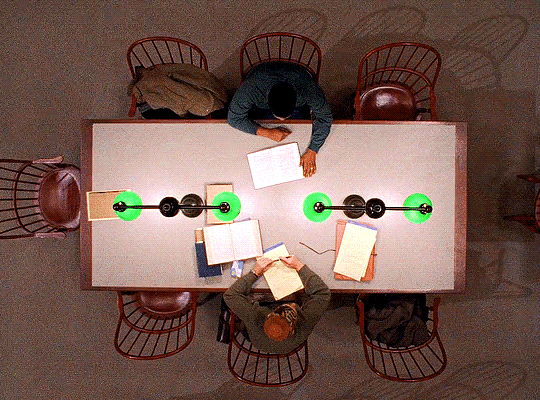
gif by @rancidtofu
You might know by now that I love a complicated relationship, so I was really thrilled that Joe eventually decided to represent Andy. Because Joe was homophobic as fuck, and he very much did not want to take the case. But again this film is smart, we never have to hear from Joe’s mouth or anyone’s for that matter that Joe decided to work with Andy after seeing how he was being treated by the librarian, but we know there’s no way it isn’t informed by experiences of racism in Black communities. The way Joe was stared at by a library worker when he was sitting at his table, the way Andy was stared at by a library worker when he was sitting at his table. The way Andy was being suggestively ushered away to somewhere out of view to other library patrons.
I loved that Joe was viciously homophobic because it demonstrates so well the boundary between work and personal life. Joe is able to do his job and do it well, and eventually after months of working with Andy, is able to come around, even touching Andy’s face which we know even has a lesion on it, by the end of the film. That is huge from someone that started the film literally running immediately to the doctor to make sure he didn’t have AIDS from shaking Andy’s hand. From a modern lens I can totally see how that would probably feel stereotypical or derivative or something like that but I think it is important to keep in mind that this film was one of the first Hollywood movies to feature HIV/AIDS and also portray gay people in a positive light. I haven’t actually been adding the for/by/about designations to the Heartbreak Alley films because something about doing that didn’t really sit right to me when we’re discussing the violence to and death of queer people. But this film definitely was not made for queer people, and Tom Hanks acknowledges that he was cast in the role for his “non-intimidating screen persona” and that “one of the reasons people weren’t afraid of this movie was because I was playing a gay man.”
The casting here was strategic to further assist audiences in sympathizing with a gay, HIV positive character.
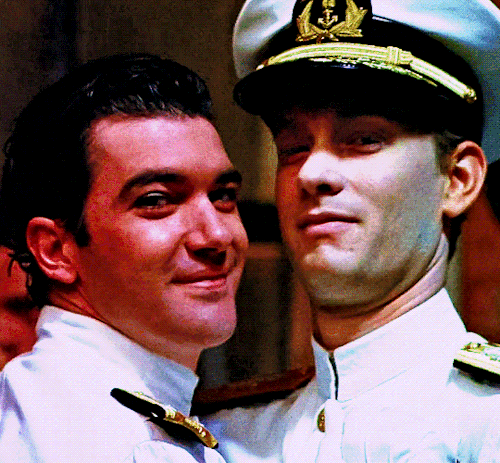
gif by @rancidtofu
I really love all the little moments of solidarity, the smiles between the Black secretary at the law office and Joe because They Know™ about experiences of discrimination in the workplace. The solidarity between the secretary with AIDS and Andy. I loved that a Black woman was teaching Andy how to apply make up to cover his lesions. I loved that Andy’s entire family knew that he was gay, knew he had AIDS, knew he had a partner and that they all loved and accepted him, and that he had so many people in his life that truly, well, and deeply cared for him.
And I love how that is used to deliver maximum emotional impact, at least to me, in one single stupid opera line.
I genuinely enjoyed essentially sitting in a court room for two hours watching Joe strategize, and execute his traps for the jury to win them over. I love how you know that they have won the second that a juror repeats verbatim a line Joe had said repeatedly throughout the trial. I am grateful the film was kind enough to let Andy be awake and alert enough to know that they had won. That his one of his last acts on earth was getting to engage with the part of law he loved most: “that every once in awhile, not often, but occasionally, you get to play a part in justice being done” Justice was done here, Joe and Andy both played a role in what could potentially become another precedented case in the roster to build towards a stronger future for gay people in the workplace. I think that (though likely coupled with how much his body was beginning to fail) is what finally made him ready to go. Because for so much of this film he would hesitate when it came to death.

gif by @rancidtofu
He froze over the line “the actual physical [death]” when quoting the line about AIDS causing a social death. He talked about planning his memorial to try to get a reaction out of Miguel, and when Miguel gave him a response he very much did not want to hear “maybe you should” he took Miguel to a party, he talked about opera instead of practicing his Q&A.
I am grateful the film ends at his memorial, not just for the memories, though I am especially glad it ends on a video of Andy as a child (to appeal to the ‘he was somebody’s kid type of crowd) but that the memorial was not entirely gloomy. There was life, there was conversation, there were smiles, it made things feel more real. Just like all “see you tomorrow” lies everyone knew they were telling themselves felt real.
Tom Hanks and Denzel Washington are such powerhouses of actors and I am so so grateful that they did this project together.
Favorite Scene
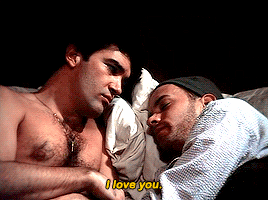
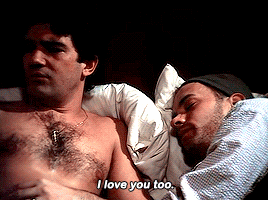
(I am acknowledging that these gifs by @antoniosbanderas have nothing to do with my listed favorite scene, but I just need you all to know that the scene of these two laying in bed was cut from the final edit of the film, so I didn't actually get to watch it, so now you know it exists if you didn't already)
My favorite scene is when the law firm is questioning Melissa Benedict, a secretary that used to work with one of the lawyers in his previous firm. Melissa was diagnosed with AIDS after a blood transfusion, and she was put on the stand to prove one of the lawyers knew what AIDS lesions looked like and therefore was able to identify that Andy had HIV a week before he was fired.
I was ready to reach through my screen to smack a bitch when the law firm’s representation started trying to make a moral argument, that Melissa’s AIDS was acceptable AIDS to have in an office because she involuntarily contracted the disease through a medical procedure, whereas Andy had had gay sex and therefore voluntarily risked acquiring HIV. And you can just see Melissa looking over at Andy so often when the law firm is trying to make this argument, and trying to get Melissa to answer questions in a way that would make her seem like she is actually of the law firm’s opinion.
And she doesn’t let them do that to Andy. Instead she looks right at him and she qualifies her response saying: “But I don’t consider myself any different from anyone else with this disease. I’m not guilty, I’m not innocent, I’m just trying to survive” and it is just a beautiful moment for me. Especially because this film is trying to portray queer people in a positive light, having a straight, white woman with a disease she had no way of preventing say that she was just like anyone else with AIDS is hugely important to driving that message home.
Favorite Quote
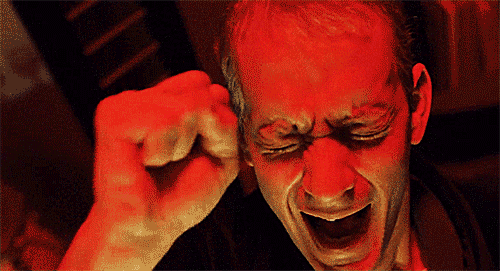
gif by @fran-kubelik
I am so sorry in advance for how long this quote is, and that 90% of it is technically just Andy translating an opera but:
“‘Look the place that cradled me is burning.’ Do you hear the heartache in her voice? Can you feel it Joe? Now in come the strings and it changes everything. It’s like the music, it fills with a hope. And that’ll change again. Listen. Listen. “I bring sorrow to those who love me” oh oh that single cello. “It was during this sorrow that love came to me.” (sobbing) “A voice filled with harmony. It said, live still. I am life. Heaven is in your eyes. It’s everything around you. It’s the blood and the mud. I am divine! I am oblivion. I am the god that comes down from the heavens to the earth and makes of the earth a heaven. I am love. I am love.”
The level of emotion, the implication behind each and every line that he translates, the way that those lines spoke to me as a queer person. “Look the place that cradled me is burning” this body, his body is failing; this life, his life is coming to an end. “I bring sorrow to those who love me” we see that with Andy’s mom, with his entire family for that matter, we see how loved he was and know that his death is going to be a devastating blow for a lot of people. “It was during sorrow love came to me” Miguel is there for all of it, through all of it. When he collapses in court, his family is the first to get to him, to try to help him. When he’s in the hospital the entire hallway is flooded with people that love him. Andy breaks at this point in his monologue, choking out the line “A voice filled with harmony. It said, live still. I am life. Heaven is in your eyes. It’s everything around you. It’s the blood and the mud.” I do not think Andy was ready to go until the very end when he finally said he was. Live still. Andy wants to live still. I am life. Heaven is in your eyes. It’s everything around you. It’s the blood and the mud. He will see Heaven soon, he is looking at the world through the lens of a dying man. “I am the god that comes down from the heavens to the earth and makes of the earth a heaven” We have one life to live, we should use it well, Andy has so much love in his life, that’s truly such a heavenly thing to have. He is seeking justice, in such a way that others might be protected the way he wasn’t. “I am love. I am love.”
I just.
I don’t know y’all I just really liked this film.
Score
9.5/10
I’m salty that Denzel wasn’t nominated for an Oscar, though I am wholly unsurprised, and I am glad Tom Hanks won and that his speech included praise of Denzel.
““And an actor who put his film image at risk and shown because of his integrity, Mr. Denzel Washington who I very much share this with”
Lovely film, highly recommend.
Now on to The Living End
#bengiyo queer cinema syllabus#queer cinema syllabus#unit 4: heartbreak alley#philadelphia#philadelphia (1993)#denzel washington#tom hanks#antonio banderas#and with this film I am now 60% of the way through Unit 4#I can see the finish line
56 notes
·
View notes
Text
Book Rec: Coming Out Under Fire, by Allan Bérubé
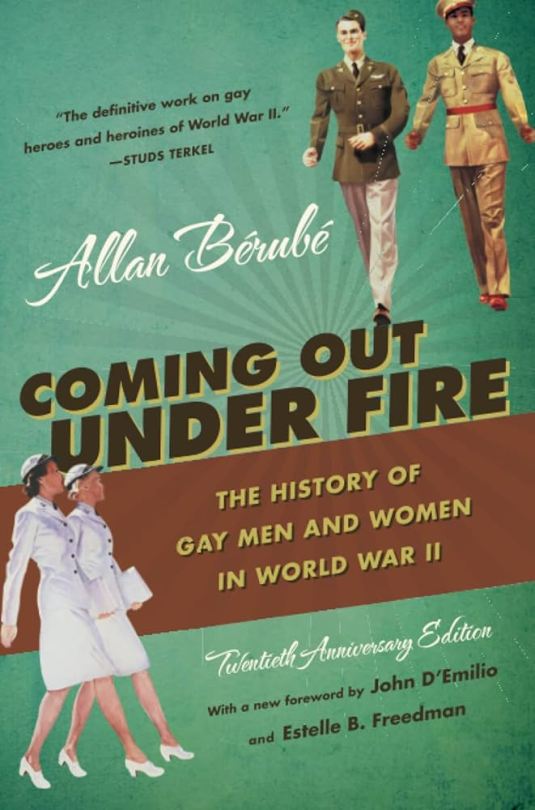
Occasionally I see some discourse on Tumblr from folks in the HBO War fandom or different historical/history adjacent fandoms about how there weren’t that many members of the queer community involved in WWII, and I’d really like to point them and everyone else with an interest in queer history to this wonderful book. Originally published in 1990, Coming Out Under Fire gets into all the different ways queer folks DID participate in the war. It’s from an American perspective, so if you’re looking for other Allied experiences, unfortunately there won’t be much here for you, but it’s exceptionally well researched, and crucially a lot of the content comes from interviews with surviving servicemembers. There’s also a documentary based on the book, which came out a few years later and includes video interviews with some of the folks included in the text.
One of Bérubé’s main points in his introduction – and for writing the book in the first place – is the American government, history textbooks, Hollywood, etc. is able to paint the WWII-era military as an almost entirely straight military force because many queer people who participated in the war effort were silenced during their lifetimes, and were unable or unwilling to reveal their true identities. Some of this was from societal pressure – the post war period saw a huge surge in homophobic rhetoric and persecution in the name of fighting Communism, not to mention the ever present heteronormative pressure to get married and have kids – but also because so many queer veterans died during the AIDS epidemic. Bérubé was inspired to preserve the voices of those who were still with us and shed a light on some of the folks we lost. (Note that this was also an intensely personal issue for Bérubé, who lost friends and his partner to AIDS and thus saw first hand how devastating this was to the community in terms of robbing us of our loved ones, friends, elders, and history itself.)
In the book, Bérubé makes the point over and over again that queer people were involved at basically every level in the American military during the war. There’s stories about guys lying when asked “Do you like girls?” during enlistment, lesbians in the Women’s Army Corps being brought to trial for fraternizing, drag shows in POW camps and in reserve, front line combat veterans discussing losing romantic partners to enemy fire or coming out to foxhole buddies, who were supportive allies rather than hateful. One of my favorite stories that’s always stuck out to me is a guy who came home and decided to come out to his elderly mother, who was fully accepting and supportive of her son’s sexuality. I see so many people speaking in absolutes that there’s NO WAY you could come out to your family and be accepted in the past, and while that was certainly true for so many people, it’s also not an absolute truth.
Please note I am NOT giving blanket permission to make assumptions about real-life people’s sexualities or identities, nor am I saying Band of Brothers fics where half the company is dating each other are historically accurate, but it’s really sad to see folks on here (unknowingly, hopefully) perpetuating the myth that there really weren’t that many queer folks in the military during WWII. We were there, we just couldn’t be out the way we might have liked to be. After the war, the Red Scare, societal pressure, and a literal epidemic silenced countless members of the community about their time in the service. There’s no way to know how many people who fought on Guadalcanal or worked at stateside bases or sorted mail in France were queer, but it’s a lot more than you were led to believe.
As a member of the community and a historian (brief resume: MA in Public History, BA in American History, have published stuff and created exhibits for dozens of museums), I just want to remind folks that we have always been here, and our lives weren’t always miserable and tragic when we came out to people or decided to live as authentically as we could get away with. It’s not completely historically inaccurate to write fic or original fiction where your queer characters can come out to their families and not be shunned, or live with their partners and not be immediately murdered. Being queer wasn’t invented at Stonewall.
143 notes
·
View notes
Text
Radinclus does NOT mean Radqueer
[PT: Radinclus does not mean Radqueer. END PT.]
🦴🎀 — proof read by the boyfie & ⛪️ — unedited
essay under the cut due to length
Well, to start with, what do either of these terms even mean? We have an explanation of radqueers (and why the community is flawed) here! If the post is too long for you to read, a basis is: They steal terms from others, support transitioning for terms that never supported it in the first place or that are impossible to transition to (i.e. transracial and/or transage) and their community is full of entirely pro-contact beings (people who support paraphiles, all of them, acting on their paraphilias) and groomers whether a "good radqueer" or not.
But then, what's a radinclus? It's a term that's commonly associated with and mixed up with the term radqueer. Radinclus is short for "radically inclusive," the term generally means one is in support of identities like gaybians, lesboys & veldigirls/turigirls and mspec monos (pan lesbians, bi gays, etc.) All of these terms are known as "contradictory" and/or good faith terms.
So, what's the difference? Radqueers have outright stolen terms and are misusing them, whether using the terms in good faith or because they think it's "cute" or "fun" in some way, they're still being misused and causing harm. These terms belonged to different groups that weren't necessarily queer, but are being taken to mean something they never meant in the first place. Terms that those who are radinclus support have history in queer culture and have existed long before radqueers ever decided to appropriate other groups' terms.
The terms lesboy and veldigirl/turigirl are typically used by systems, those who are multigender or those who are trans and still feel a queer attraction towards women or men. These terms were never meant to be used by solely cisgender heterosexual men or solely cisgender heterosexual women. To say that multigender people who may identify as a man and a woman don't belong in either gay nor lesbian communities IS discrimination. You can be a minority and a marginalized group and discriminate against other marginalized groups, excluding multigender people from these spaces is discrimination. By letting them into your spaces, no, we aren't forcing you to date them. But acknowledge that they exist — acknowledge that gender is different for everyone and because of that, so is sexuality.
For those who are trans and still feel a queer attraction towards the opposite gender, that is entirely valid! The NWLNW (Non-Women Loving Non-Women) and NMLNM (Non-Men Loving Non-Men) terms were historically used by TERFs to discriminate against trans men and women and imply that they were not 'actual men' or 'actual women'. Alternative terms to NWLNW and NMLNM are QLM & QLW (Queer Loving Men and Queer Loving Women). A cisgender heterosexual man would never understand the queer attraction that a trans man might feel towards women, nor would a cisgender heterosexual woman be able to understand the queer attraction towards men that a trans woman may hold. And no, a trans man using the term lesbian or a trans woman using the term gay isn't misgendering themselves — if one label fits them more than another & they're using it in good faith, let them!
Now, what's a 'gaybian'? Or a 'lesgay'? Or a 'straightbian'!? Someone who identifies as both gay & a lesbian (or straight and a lesbian, but we'll be focusing on what a gaybian because the same explanation can be used for other variations). You might be thinking now, well if the definition for lesbian and gay are queer loving men and queer loving women, how can you experience queer attraction to both if you're not both genders? Well, for one, most people who are gaybian are multigender — the way they view their attraction to both genders may be different because of that. They may view themself as both a gay man and a lesbian woman, and that's perfectly valid! If you believe that one or both of their identities as such are invalid or that they need to make their own community, that just means you have internalized biases against multigendered people. Others who may use this term are systems due to the varying genders and orientations between the alters.
Finally, mspec monos, also known as mspec gays or lesbians. Firstly, what does 'mspec' mean? Mspec is short for multispec, which is the umbrella term for identities in which one is attracted to multiple genders — i.e. pansexual, bisexual, omnisexual, etc. How can one be both multispec and lesbian? The most common explanation are those who use SAM, the split-attraction model. Many use the argument that SAM was made for aspecs by aspecs, and therefore mspecs cannot use it, but the first example of the SAM was in 1879 by Karl Heinrich Ulrich who used the example of heteroromantic homosexual in his writings. While romantic and sexual attraction may not be as separate and more intertwined for others, that isn't the case for everyone. Not everyone has to use the split attraction model, but it does work for those who's sexuality and romantic orientations are aimed towards separate genders.
Some people just ARE multispec and gay/lesbian — not understanding an identity isn't an excuse to shit on or discriminate against it. That's not to say blindly accept it, but there is proof and recorded history of these identities existing in the queer community for years. You cannot brush them off as "just a new fad" or "trend" when they've existed since before you did. Most radqueers support harmful beliefs and encourage them, radinclus is the inclusion of identities that have always been apart of our community — but have been thrown to the side for more 'easy to understand' ones. Whether you think they're 'the reason people aren't willing to understand' or not, don't fight against people who're in the same community fighting the same fight as you. There will be people who will hate you whether you're the most 'normal', 'straight-person-looking' lesbian ever or the people that you hate in your own community — the only difference is that when they're driving YOU out, there'll be no one left to help you.
Other Good Faith Identity Resources : Lesboys Carrd , Good Faith Resources Hub , Bi Gay / Lesbian Masterdoc
#➜ talking.#➜ resources.#➜ archived — anti radqueer.#anti rq#anti radqueer#anti prat#anti 🍓🌈#anti radshit#anti radpara#radinclus#radinclu#rad inclus#( 🦴🎀 )
85 notes
·
View notes